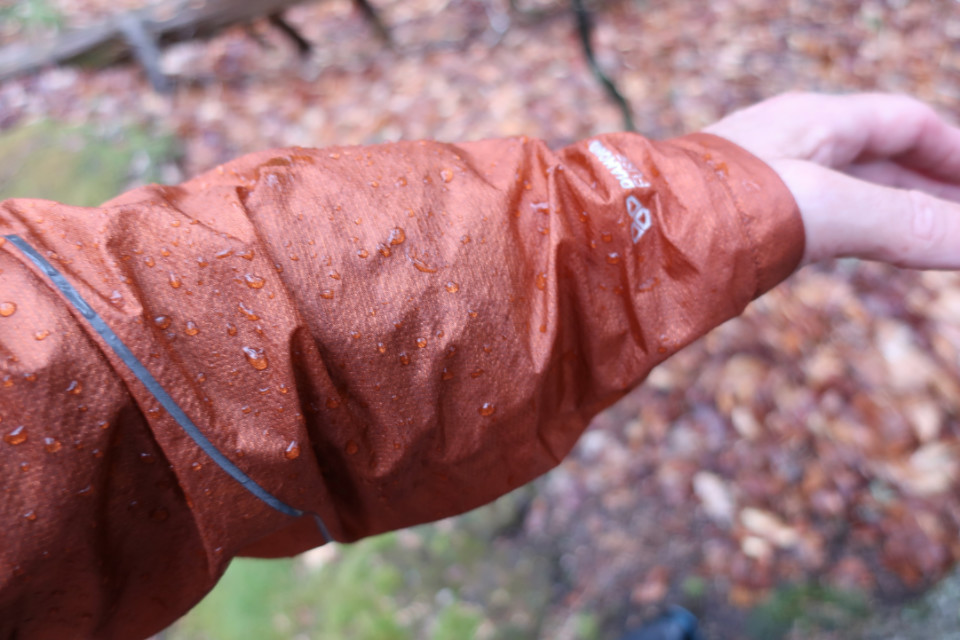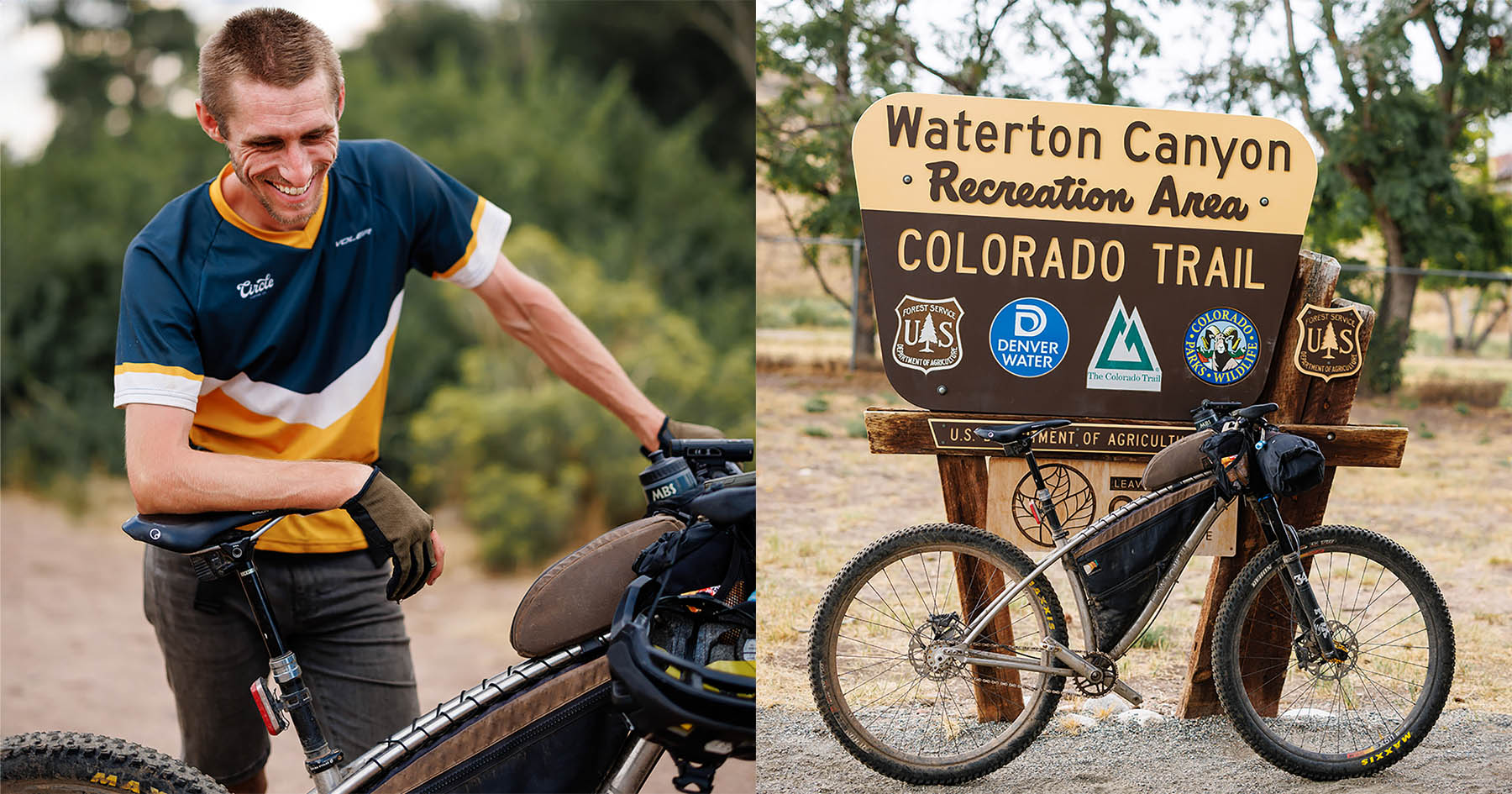PROTECT YOUR DNA WITH QUANTUM TECHNOLOGY
Orgo-Life the new way to the future Advertising by Adpathway
Gossamer Gear’s “The One” is a one-person, ultralight, single-wall trekking pole tent that weighs 17.7 oz. It has a spacious interior that’s a palace for one, with excellent ventilation to help prevent internal condensation. Factory seam-taped, The One is made of a 10D Nylon Ripstop SIL/PU fabric. If you’re looking for an easy-to-pitch ultralight tent that’s big on interior space, features, and livability but value-priced, the Gossamer Gear The One is a great choice.
Specs at a Glance
- Minimum Trail Weight: 17.7 oz / 503 g
- Capacity: 1 Person
- Poles required: 2
- Fabric: Custom 10D Nylon Ripstop SIL/PU fabric waterproof to at least 1800mm
- Dimensions: 33″ (head) x 21″ (foot) x 84″ (length) x 45″ (height)
- Seam-Taped: Yes
- Minimum number of stakes to pitch 6; 6-8 recommended
- Tent stakes included: Yes
- Color: Stealthy Grey
- Pros: Lightweight, spacious interior, great ventilation, easy to set up, good for tall hikers
- Cons: The Clothesline and flashlight loop listed in the manufacturer’s specs are missing.
The Gossamer Gear One is a single-wall tent with two peaks that requires two trekking poles (or tent poles, sold separately) to set up. It has a floating bathtub floor, which is connected to the tent walls and front mesh door, creating an inner chamber, where the external rainfly provides weather protection and acts as the inner chamber’s ceiling. Some manufacturers refer to this as a hybrid, single-wall tent.
 The One has two peaks and requires two trekking poles to set up.
The One has two peaks and requires two trekking poles to set up.The front wall of the inner chamber is entirely mesh, featuring a zippered door, while the rear wall is composed of 1/3 mesh and 2/3 solid fabric. The front mesh wall is protected from the weather by a front vestibule that has two doors, connected in the center by a waterproof zipper, while the rear wall is protected by a short awning to save weight. Unlike the front vestibule, which provides ample storage for gear, the area under the awning is not accessible from the inner chamber.
 The rear awning protects the mesh in the upper third of the back wall from rain
The rear awning protects the mesh in the upper third of the back wall from rainYou can roll one or both of the front vestibule doors open for ventilation and views. When opening and rolling back both doors, the guyline is attached from the peak above the door to the ground, ensuring the tent remains standing. Not all manufacturers enable this. When you roll the doors open and back, they are secured with simple dowels and elastic loops. Each of the doors has two such dowels and loops on each side, so you get a tight roll that stays rolled open. The screen doors piggyback on the same dowels. Again, this is a nice touch, since many tents only include one dowel, which often fails to adequately secure the full length of the door.
 The front guy line makes it possible to roll back both vestibule doors (without the tent falling down.)
The front guy line makes it possible to roll back both vestibule doors (without the tent falling down.)The bathtub floor in “The One” is 84″ long, making it suitable for taller hikers, up to about 6′ 6″. There are two vents in the bathtub floor, positioned at the head and foot ends, where people tend to generate the most moisture at night, typically from their head or feet. While you can’t close these vents, you can block airflow by staking the exterior canopy low to the ground outside them or by blocking the vents with clothing or gear.
 Vents at the head and foot ends help vent perspiration
Vents at the head and foot ends help vent perspirationSetup
Setting up The One is quite straightforward. Simply find a fairly flat pitch and stake out one side of the grey rainfly, keeping the corner guylines very loose with lots of slack. These guylines have lineloc adjusters, which make them very easy to tension when the time comes.
 There are two dowel tiebacks for each door.
There are two dowel tiebacks for each door.Stake out the other side of the rainfly the same way, and insert the trekking poles into the peaks. The peaks are designed to accept pole handles, but they are reinforced internally, allowing you to insert your pole tips instead (useful if you use Pacerpoles with unconventional grips). Stake down the rear awning and front door again, loosely, then walk around the tent and tighten the guylines until you achieve a taut pitch. You’ll need just 6 stakes in most conditions to get a secure pitch: there are two additional guyout loops on the panels that you can also stake out in high wind to keep the ends taut.
 There is a sizable gap between the bottom of the front vestibule and the ground to help improve ventilation.
There is a sizable gap between the bottom of the front vestibule and the ground to help improve ventilation.When pitched, there is a noticeable air gap between the ground and the front and rear vestibules. This design is intended to promote better air circulation, which is crucial for keeping internal condensation at bay in a single-wall tent. In bad weather, you can adjust the amount of air blowing under the front vestibule by lowering the pole height and pulling the front vestibule canopy guylines as close to the ground as possible. Gossamer Gear also provides you with additional guyline so you can further secure the tent to the ground. However, given the size of this tent and its wind profile, your best bet is to stay out of heavy wind and find a more sheltered tent site.
 While it has a spacious interior, its still easy to squeeze The One into narrow unprepared tent sites.
While it has a spacious interior, its still easy to squeeze The One into narrow unprepared tent sites.Livability
The interior of The One is spacious and well-appointed. There’s a large side mesh pocket positioned above the top of the bathtub floor, where it’s safe to stow glasses or your phone without fear of them getting crushed if you roll around at night. I love that pocket because it’s large enough to hold my headlamp, phone charger, and glasses at night, making them easy to find.
 The interior of the tent is quite spacious, with excellent headroom.
The interior of the tent is quite spacious, with excellent headroom.But the clincher is the amount of space in the interior of the tent. Measuring 84″ long, you can easily fit a 6 foot sleeping pad inside without your face or toes touching the ceiling at the ends where the roof slopes down. The bathtub floor is tapered, with a head end that’s 36″ inches wide and a foot end 24″ wide, and there’s plenty of extra space next to a 20″ sleeping pad to keep gear close at hand during the night. You can also easily sit upright inside the tent (the apex height is 45″) and get dressed or undressed without having to be a contortionist.
Comparable Trekking Pole Tents
Recommendation
Weighing just 17.7 ounces, Gossamer Gear’s “The One” ($255) is an awesome value if you’re looking for a spacious and well-ventilated ultralight backpacking tent. With abundant floor space and covered storage, The One is long enough to fit tall backpackers as well as those who want more headroom and floor width. Factory seam-taped, there’s no need to seam seal The One before use. However, like most ultralight tents, having good campsite selection skills is crucial to minimize floor abrasion and wind exposure.
SectionHiker never accepts payment for gear reviews or editorial coverage. When you buy through affiliate links on our site, we may earn a small commission at no extra cost to you. Help us continue to test and write unsponsored and independent gear reviews, hiking and backpacking FAQs, and free hiking guides.
Disclosure: Gossamer Gear donated a tent for review.



















 English (US) ·
English (US) ·  French (CA) ·
French (CA) ·